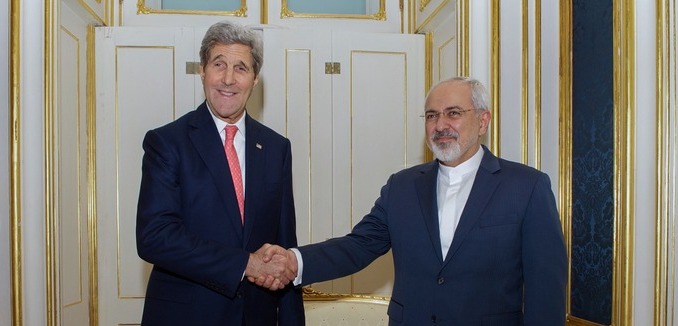After the United States passed a law tightening its visa waiver program, Iran said that doing so was a violation of the nuclear deal signed by global powers in July, and threatened to file a complaint to the Joint Commission, a new international body that governs disputes between the signatory countries. This development illustrates one of the controversial agreement’s biggest structural flaws.
Recently, Iranian officials have contended that the visa waiver program, which does not include an exemption for Iran, interferes with commerce between the two nations, and is therefore tantamount to imposing new sanctions on Iran. This, they contend, constitutes a violation of the nuclear deal, which would mean that Iran would be allowed “to cease performing its commitments” under the agreement. (It is unclear how refusing to give Iran preferential treatment is the same thing as sanctioning it. Furthermore, even if it was a sanction, the deal, which is formally known as the Joint Comprehensive Plan of Action or JCPOA, prevents the United States from placing new sanctions on Iran in response to nuclear work, but the U.S. can still sanction Iran for its sponsorship of terrorism, as Secretary of State Kerry has repeatedly stated).
All this shows how Iran pursued this deal from the perspective of a wrongly-accused innocent seeking vindication, rather than as a repeat offender of international laws and UN Security Council resolutions seeking forgiveness. The language and the terms of the nuclear deal reflect this Iranian perspective.
For example, the terms of the deal that address Iranian violations are included in a section called “Dispute Resolution Mechanism.” This puts Iranian complaints about the actions of global powers on the same level as actual Iranian violations of the nuclear deal. Instead of being a deal that focuses on Iranian misbehavior with the goal of preventing it, it is a deal that treats Iranian grievances for any pretext on an equal level with Iranian cheating.
This means that Iran can bring up any grievance to change the terms of the deal. Even though the restrictions on the visa waiver program are not sanctions, and are terror-related rather than nuclear-related, the Iranian threat prompted Kerry to write a letter to Iranian Foreign Minister Mohammad Javad Zarif assuring him that the administration is prepared to issue waivers to the law so that it “will not in any way prevent us from meeting our JCPOA commitments.”
The “Dispute Resolution Mechanism” isn’t just a flaw in how the agreement is and will be executed, but also in how it was conceived.
Former White House adviser Dennis Ross and former CIA Director Gen. David Petraeus wrote in an op-ed in The Washington Post in August that the deal as written treats Iran “like Japan or the Netherlands — but Iran is not Japan or the Netherlands when it comes to its behavior.” Iran is one of three countries designated by the United States as a state sponsor of terrorism, and has a long history of cheating on its nuclear commitments, making it a poor candidate to be trusted on its new commitments.
In a March interview with The Times of Israel, Ross said that to be effective the deal would have to make clear that Iranian violations of the deal would have specific consequences, including the use of force in the case of the worst violations. Instead, the deal relegates all Iranian violations to an ill-defined “Dispute Resolution Mechanism” with no clear or guaranteed punishments for violations. This lack of clarity also allows Iran to change the terms of deal, as it has done with the visa waiver program.
[Photo: UNVIE U.S. Mission To International Organizations in Vienna / Flickr ]




